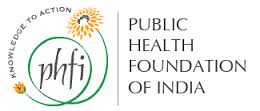The medical education in India is catering to more urban centres while rural areas face neglect, according to a report prepared by Public Health Foundation of India
GN Bureau | March 15, 2014

India’s real GDP is projected to grow 6.5–7 per cent in 2024-25. The Indian economy recovered swiftly from the pandemic, with its real GDP in FY24 being 20 per cent higher than the pre-COVID, FY20 levels. This was stated in the Economic Survey 2023-24 presented in Parliament Monday by finance m
As the Indian concept of welfare transforms into empowerment, India is transitioning from women’s development to women-led development, highlights the Economic Survey 2023-2024. Tabled in the Parliament on Monday by finance minister Nirmala Sitharaman, the Economic Survey 2023-2024 fo
Provincials: Postcards from the Peripheries By Sumana Roy Aleph Book Company, 320 pages, Rs 899 Sumana Roy’s latest work, like its p
Knowledge is a powerful weapon to help people and improve their lives. Knowledge provides the tools to understand society, solve problems, and empower people to overcome challenges and experience personal growth. Limited sources were available to attain information on the events in and arou
Punjabi Centuries: Tracing Histories of Punjab Edited by Anshu Malhotra Orient BlackSwan, 404 pages, Rs. 2,150
The Scam That Shook a Nation By Prakash Patra and Rasheed Kidwai HarperCollins, 276 pages, Rs 399 The 1970s were a